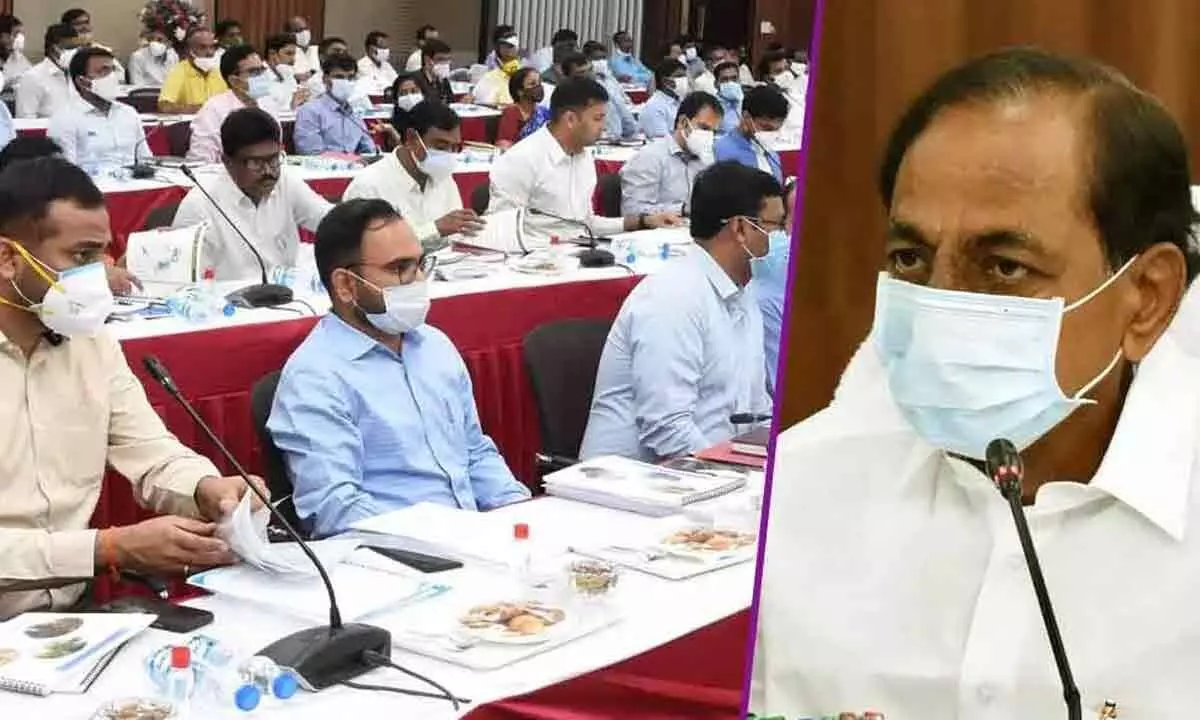Freeing ULBs in letter and spirit

(File Pic)
The Telangana government during a review meeting of Panchayat Raj department raised objections to the 74th Constitution Amendment which was passed by Parliament about 27 years back with the aim of strengthening the system of self-governance of gram panchayats and empower them with decision-making abilities, revenue generation and financial autonomy.
The Telangana government during a review meeting of Panchayat Raj department raised objections to the 74th Constitution Amendment which was passed by Parliament about 27 years back with the aim of strengthening the system of self-governance of gram panchayats and empower them with decision-making abilities, revenue generation and financial autonomy.
This is a very important issue which should in fact be converted into a major national debate by the time the country goes to polls. There was a strong reason for bringing in the 74th Amendment to the Constitution. Before the amendment, the Panchayats did not have enough freedom in decision making to take up developmental activities. But why barring 11 state governments, no other government has devolved municipal functions to Urban Local Bodies? Still Urban Local Bodies are forced to remain dependent on state for funds and decision making. If cities are to become key economic centres and have efficient transportation system, well-designed infrastructure, access to clean water and air, and a buoyant housing market, well planned and structured, Government, 'local self-government' becomes important.
The salient features of the amendment were to have a three-tier system of panchayats at village, intermediate block/ taluk/mandal and district levels, direct elections, reservations for SCs, STs, and chairpersons of panchayats at all levels in proportion to their population.
One-third of the total number of seats to be reserved for women. One third of the seats reserved for SCs and STs also reserved for women. One-third offices of chairpersons at all levels are to be reserved for women. District Planning Committees were to be constituted to consolidate the plans prepared by Panchayats and Municipalities (Article 243ZD) were to be created. Budgetary allocation from State governments, share of revenue of certain taxes, collection and retention of the revenue it raises, Central Government programmes and grants, Union Finance Commission grants, establishing a Finance Commission in each state to determine the principles on the basis of which adequate financial resources would be ensured for panchayats and municipalities was the original concept when the Parliament passed the bill. But both the States and the Centre have done little to devolve critical powers to local governments and ensured the panchayats remain dependent on them for funds and decision-making processes related to key issues of cities.
It is strange and illogical to see that most State Governments continue to retain the final say on local matters such as fixing a drainage pipe, improving street lighting and addressing road pothole concerns.
Chief Minister K Chandrasekhar Rao made a valid point saying that local governments will know the local problems better. True but same analogy should be extended to panchayats also. Only local panchayats will know their priorities better. Is that happening?
It is surprising that most of the state governments including Telangana thinks that the repository of wisdom and intelligence lies only with the state government and refuse to make ULBs independent in letter and spirit.
The Central Government too has, over the years, shown limited interest in re-shaping the 74th Amendment and encouraging States to devolve powers to local governments. For example, notional powers are given to panchayats even in regard to crucial issues like public transport. They are still decided at the state level.
The amendment was to ensure that ULBs show initiatives to work out a development map with their potential sources of revenue rather than depend on Central and State grants. But that is not happening in practice. No state is allowing them to have financial autonomy even when the Centre is giving funds directly to the ULBs.

